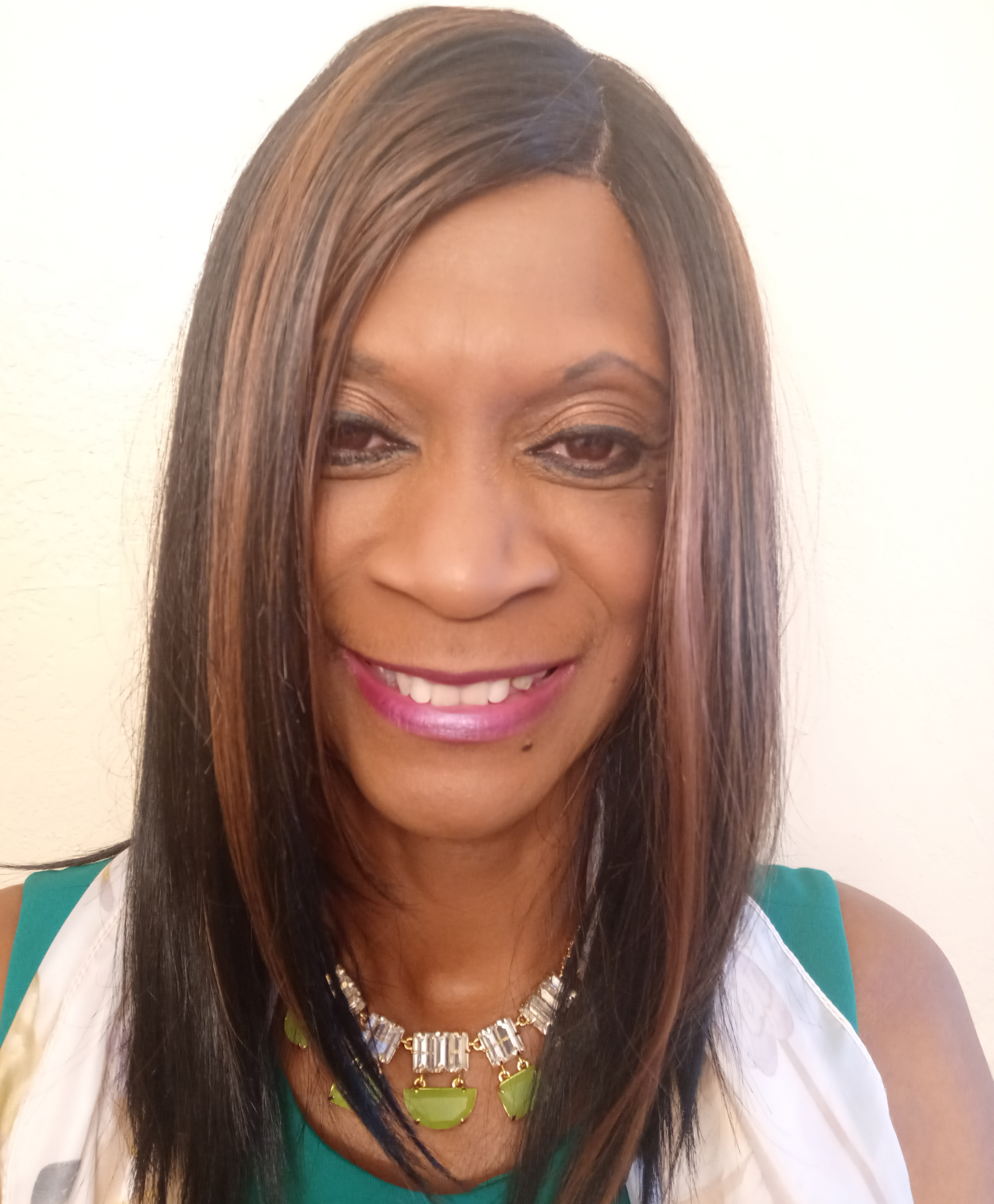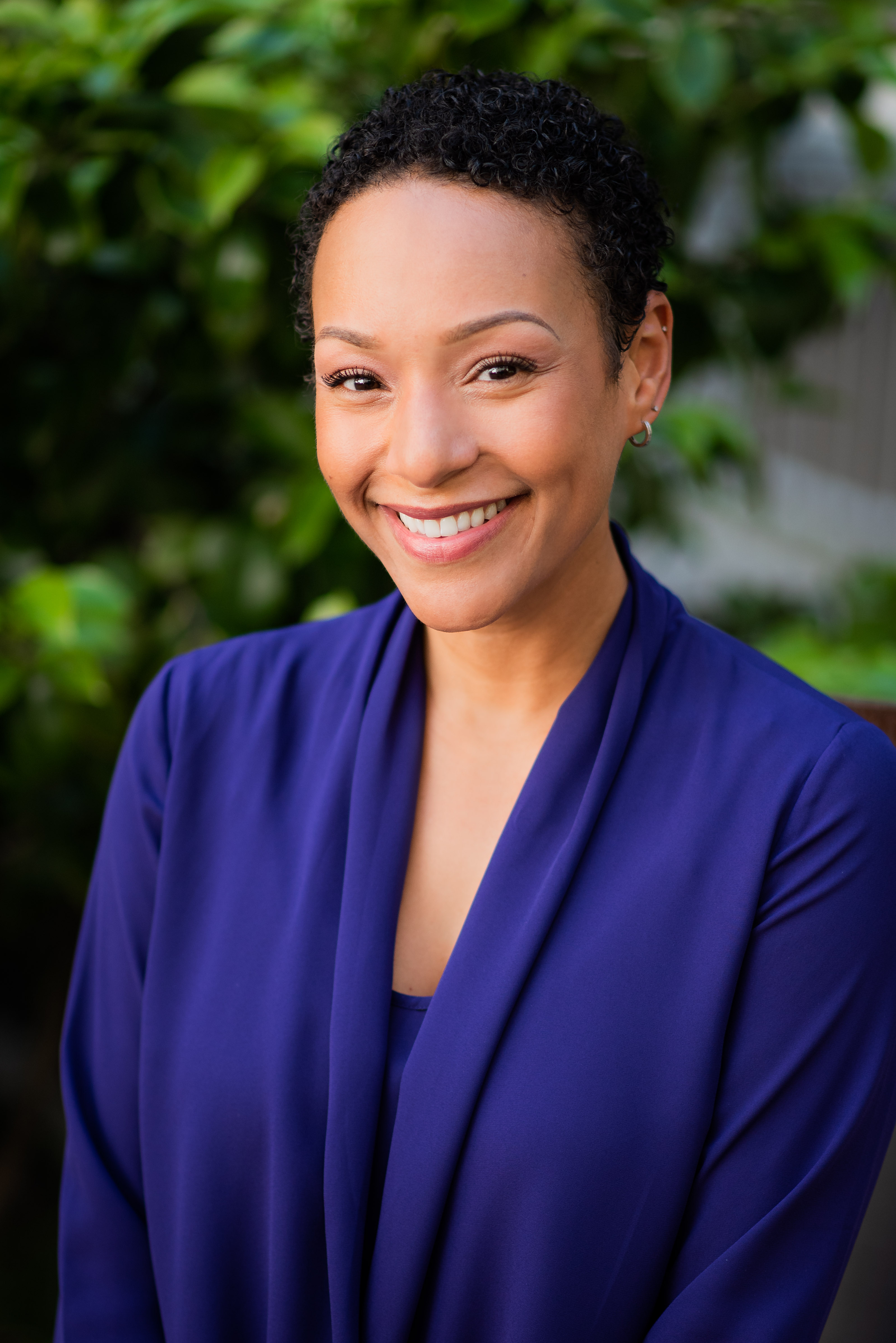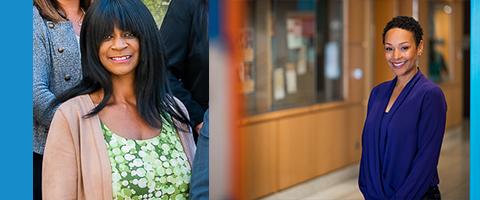Cheryl Salmon, Administrative Officer
 Where are you from and how did you choose to work for UCSF and the department of Anesthesia? I was born and raised on the East Coast in New York City, aka The Melting Pot of a "wide variety of ethnicities and language groups in the city." The City That Never Sleeps.
Where are you from and how did you choose to work for UCSF and the department of Anesthesia? I was born and raised on the East Coast in New York City, aka The Melting Pot of a "wide variety of ethnicities and language groups in the city." The City That Never Sleeps.
When I really think and reflect on my journey and the different roads that led me to UCSF, the reality is that UCSF really chose me even before I realized that I wanted to be a part of this community. How is that possible? The UCSF Mission Statement and the commitment to public service and leading the way to the best healthcare service to all mankind.
During my career journey and department transition at UCSF, I was offered an opportunity to work in the Anesthesia and Perioperative Department and have remained here for several years.
Describe when you realized you wanted to dedicate your life to healthcare? I started my internship at UCSF in 2016 through the UCSF/JVS EXCEL program. I was in the Liver Transplant department, and I was amazed at the stellar work of the faculty, nurses, physician assistants, staff and social workers working together with the patients during the transplant program. It is quite an arduous process, but it was worth all the hard work because the liver transplant patients' lives were transformed by getting a gift to start a new life. It really is giving the patients and their families a second chance. I love a good comeback story where people are given an opportunity to start over again.
Charlene Blake, MD, PhD, Associate Professor, Adult Cardiothoracic Anesthesia
 Where are you from and how did you choose to work for UCSF and the department of Anesthesia: I am originally from Harrisburg, PA, though I’ve lived in many other parts of the US and moved to SF from St. Louis, MO. I chose UCSF because of the people-- I felt supported, valued, and respected, which I deemed important for the first position out of training. I remain for those same reasons.
Where are you from and how did you choose to work for UCSF and the department of Anesthesia: I am originally from Harrisburg, PA, though I’ve lived in many other parts of the US and moved to SF from St. Louis, MO. I chose UCSF because of the people-- I felt supported, valued, and respected, which I deemed important for the first position out of training. I remain for those same reasons.
Describe when you realized you wanted to dedicate your life to healthcare?
The question “What do you want to be when you grow up?” met the same enthusiastic response since I was five years old— “I’m going to be a doctor”! As a child of the early 80’s, I was influenced by The Cosby Show. Even then, I knew physicians helped people, were important and respected, adults loved hearing that response and it seemed to afford Dr. Huxtable a nice life for himself and his family. Fortunately, this early alignment with medicine has been consistently reinforced, combining a lifelong interest in STEM, aptitude for learning and teaching, and passion for everyone to be able to live their best lives.
What healthcare problem do you feel called to solve and why?
I feel called to increase the number of thriving black and brown physicians such that we no longer use the term “Underrepresented in Medicine”. We have evidence that race-concordant care increases patient satisfaction while improving outcomes and diversity adds value to all domains of healthcare. Representation matters and population parity should be standard.
What are your hopes for the future of healthcare?
I hope that anyone who wants to enter healthcare as a career can do so without external barriers and prosper as their most authentic selves. Additional hopes for the future of healthcare (the end of medical disparities by race, solving access to care, changes to policy to address social determinants of health, etc.) are achieved through first increasing the number of people who flourish while working on these issues.
